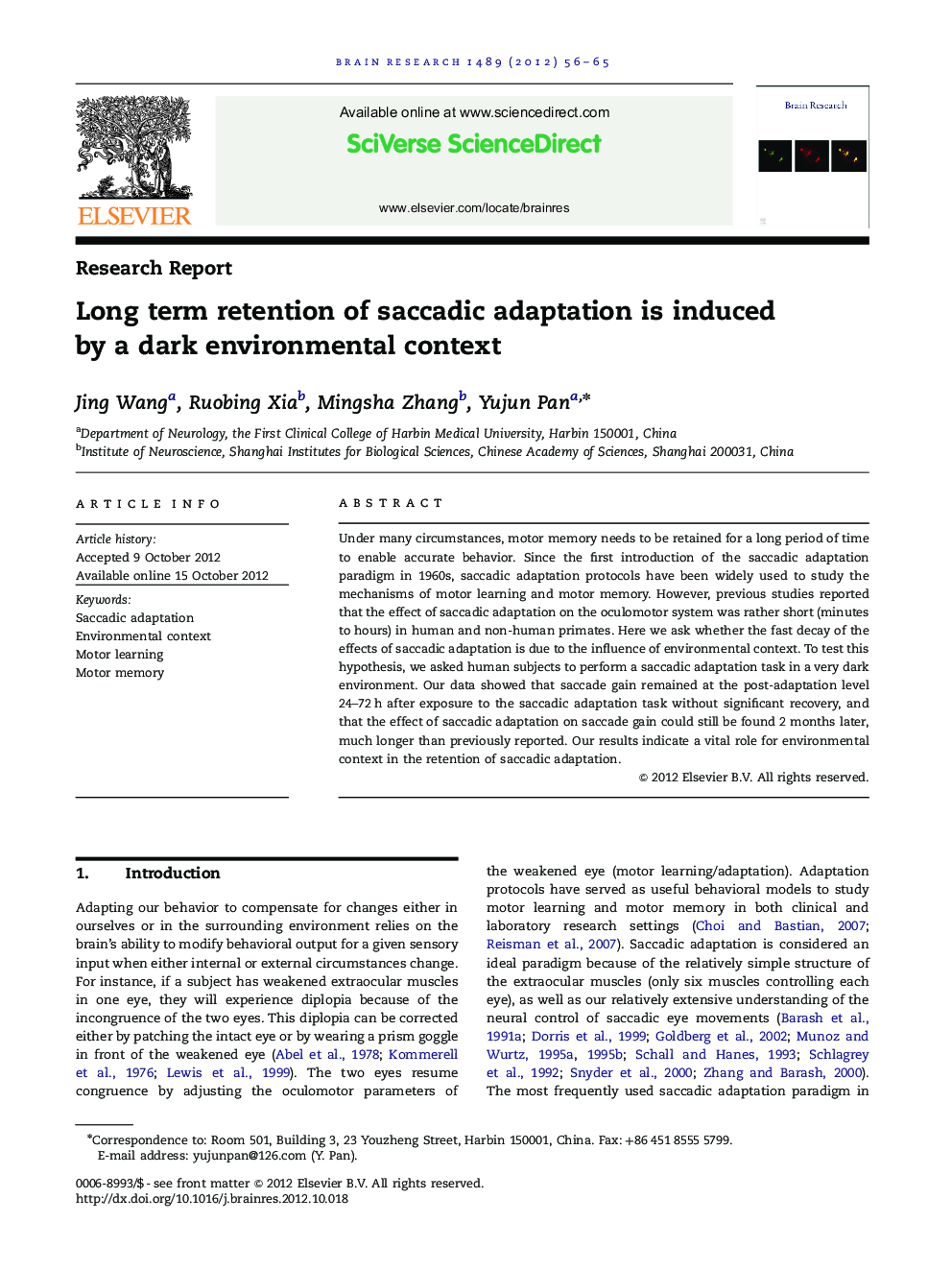| Article ID | Journal | Published Year | Pages | File Type |
|---|---|---|---|---|
| 6264074 | Brain Research | 2012 | 10 Pages |
Under many circumstances, motor memory needs to be retained for a long period of time to enable accurate behavior. Since the first introduction of the saccadic adaptation paradigm in 1960s, saccadic adaptation protocols have been widely used to study the mechanisms of motor learning and motor memory. However, previous studies reported that the effect of saccadic adaptation on the oculomotor system was rather short (minutes to hours) in human and non-human primates. Here we ask whether the fast decay of the effects of saccadic adaptation is due to the influence of environmental context. To test this hypothesis, we asked human subjects to perform a saccadic adaptation task in a very dark environment. Our data showed that saccade gain remained at the post-adaptation level 24-72Â h after exposure to the saccadic adaptation task without significant recovery, and that the effect of saccadic adaptation on saccade gain could still be found 2 months later, much longer than previously reported. Our results indicate a vital role for environmental context in the retention of saccadic adaptation.
⺠The saccadic adaptation task was performed in a very dark environment. ⺠The saccade gain remained at the post-adaptation level 24-72 h later. ⺠The effect of saccadic adaptation on saccade gain still was found 2 months later.
